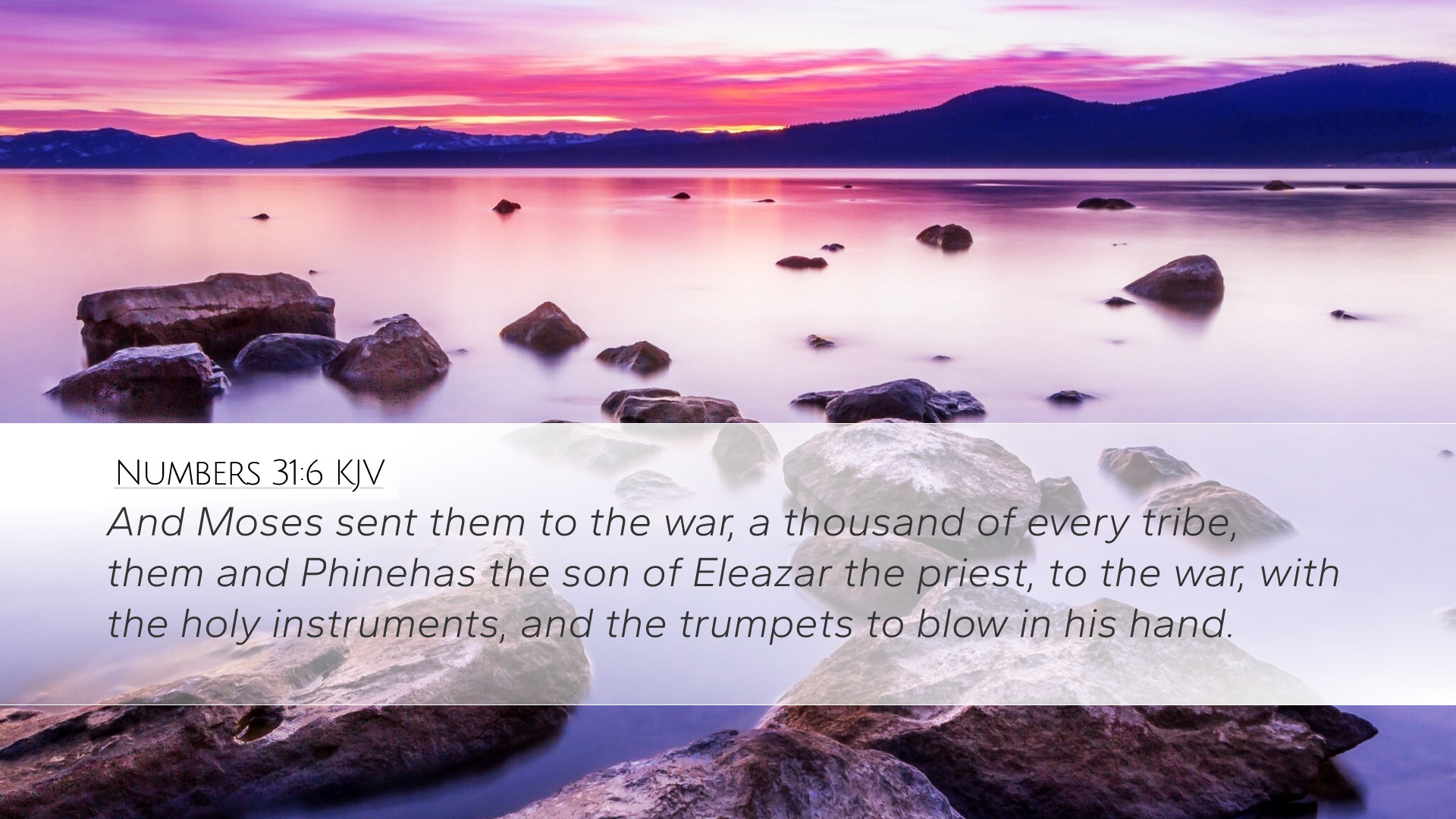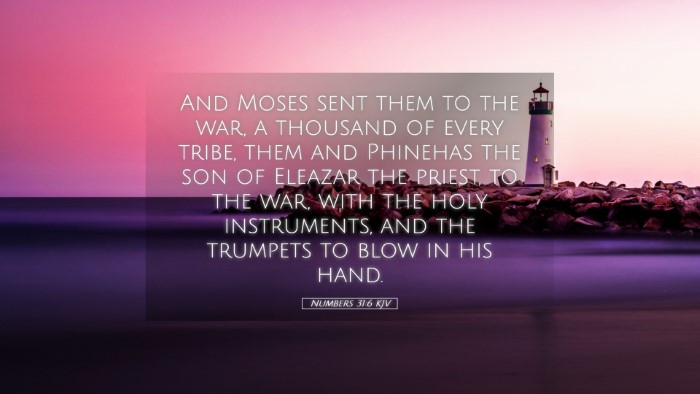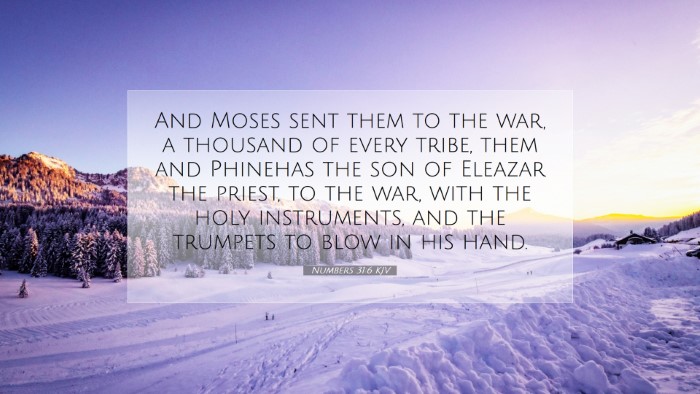Commentary on Numbers 31:6
Verse Text: "And Moses sent them to the war, a thousand of every tribe, them and Phinehas the son of Eleazar the priest, to the war with the holy instruments and the trumpets to blow in his hand." (Numbers 31:6)
Contextual Background
The book of Numbers serves as a transitional narrative between the Israelites’ journey through the wilderness and their eventual settlement in the Promised Land. By the time we reach Chapter 31, the Israelites have already been instructed and prepared for their future conquests. This chapter specifically addresses a divinely mandated conflict against the Midianites, a people instrumental in leading Israel into sin through idolatry and immorality (See Numbers 25:1-3).
Commentary Insights
1. Divine Command and Leadership
The command to engage the Midianites is significant as it underscores the continual theme of divine justice. Moses, acting as God’s appointed leader, demonstrates obedience by mobilizing a contingent from each tribe. Matthew Henry emphasizes that God could use the shortcomings of His people as an instrument for judgment against heathen nations, endorsing the view that God’s providence orchestrates both the affairs of His people and their adversaries.
2. The Role of Phinehas
Phinehas' inclusion in the expedition is notable. Albert Barnes explains that Phinehas, as the grandson of Aaron, represents a strong priestly lineage. His earlier action of zeal against idolatry (Numbers 25:7-13) demonstrated his fervent commitment to God's holiness. Thus, his presence in the army signifies that this battle is not merely a physical confrontation but also a spiritual endeavor, highlighting the importance of wanting God’s blessing in warfare.
3. The Nature of the Instruments
The inclusion of "holy instruments" and "trumpets" denotes the sacred nature of the endeavor. Adam Clarke notes that the instruments may refer to the silver trumpets used for calling the assemblies and signaling different activities within the camp. This practice reflects the idea that worship and warfare are not disparate activities but are interconnected under the covenantal relationship between Israel and God.
4. Symbolism of the Warfare
The sending forth of soldiers with sacred instruments illustrates that all activities—military in this case—should be undergirded by a reverence for God. Matthew Henry points out that in spiritual battles, believers are called to support their efforts with prayer and sound doctrine, reminiscent of Ephesians 6:10-18, where believers are equipped with the ‘armor of God’.
5. Implications for the Community of Believers
This passage sheds light on collective responsibility within the community. Every tribe participated in the battle, symbolizing that every member of the community has a role. Albert Barnes explains that it serves as a reminder to believers that they are not isolated in their spiritual struggles; rather, they are part of a larger body (“the Church”) that collectively confronts evil and promotes righteousness.
6. Lessons in Obedience and Warfare
Throughout Scripture, the act of going to battle reverberates with deeper spiritual implications, where physical confrontations mirror internal conflicts against sin and temptation. As highlighted by Adam Clarke, ecclesial conflicts today should likewise be approached with an attitude of prayer and reliance on God's strength, suggesting that believers ought to prioritize spiritual readiness whenever they confront life's challenges.
7. Conclusion
Numbers 31:6 encapsulates essential themes of obedience, divine judgment, communal responsibility, and the sacredness of God’s mission. It invites modern believers to reflect on how they prepare for spiritual warfare—not merely relying on human strength but aligning with God's commands and truth. By invoking holy instruments for battle, this passage paints a profound picture of how God equips His people as they engage in their spiritual journey. As pastors, students, theologians, and scholars reflect on this text, may they be encouraged to view every struggle through the lens of God’s sovereignty, holiness, and divine purpose.


